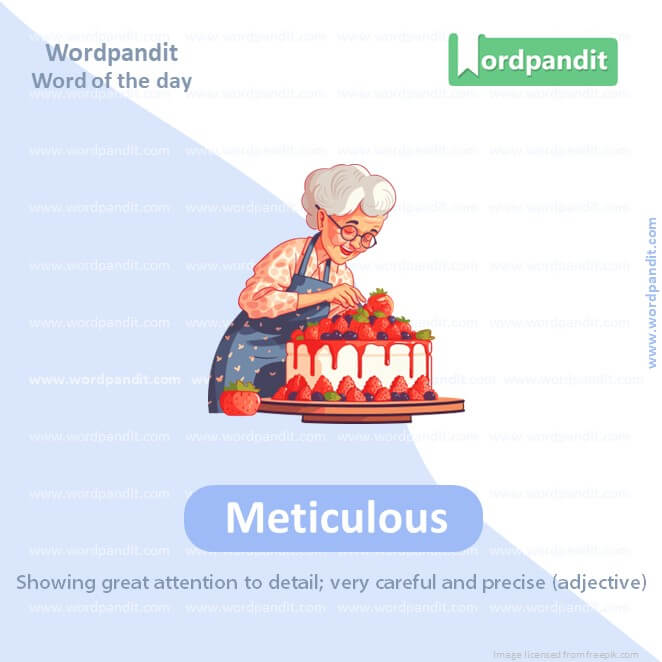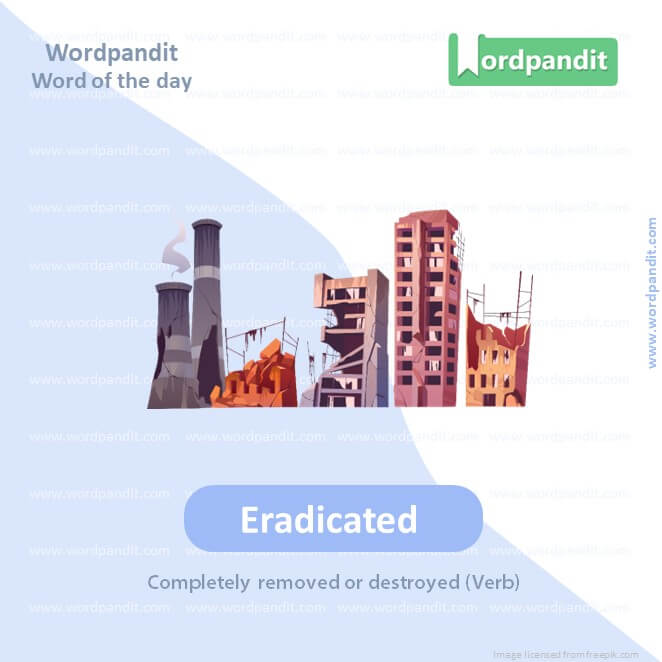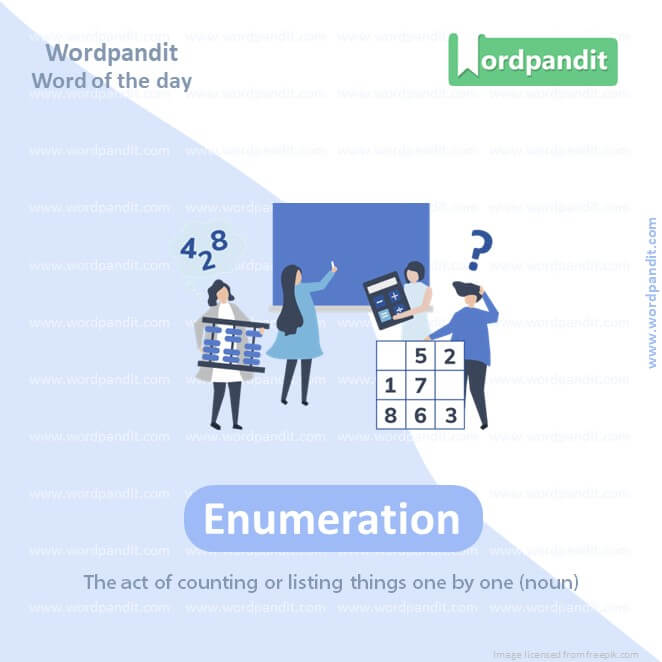Daily Vocabulary Words: List of Daily Used Words in Leading Indian Newspapers
Hi there. Welcome to this special section @ Wordpandit. Our endeavour here is straightforward: highlighting daily vocabulary words that you would come across in leading newspapers in the country. We have included the following newspapers in our selection:
• The Times of India
• The Economic Times
• Hindustan Times
• Mint
• Indian Express
We are putting in extensive work to develop your vocabulary. All you have to do is be regular with this section and check out this post daily. This is your repository of commonly used words; essentially, we are posting a list of daily used words. Hence, this has significant practical application as it teaches you words that are commonly used in leading publications mentioned above.
Visit the website daily to learn words from leading Indian newspapers.
WORD-1: Underwhelming
CONTEXT: The first and the largest phase of the 2024 Lok Sabha elections has registered an underwhelming voter turnout of around 66.1 per cent, which is a drop of nearly four percentage points compared to 2019.
SOURCE: Indian express
EXPLANATORY PARAGRAPH: Imagine watching a movie that everyone said was amazing, but when you see it, it’s just okay and not as exciting as you expected. This feeling of not being impressed is called “underwhelming.” It means something is less exciting or effective than expected.
MEANING: Failing to impress or make a positive impact (adjective).
PRONUNCIATION: un-der-WHEL-ming
SYNONYMS: disappointing, unsatisfying, lackluster, uninspiring, mediocre
USAGE EXAMPLES:
1. The finale of the show was rather underwhelming.
2. His response to the important question was underwhelming.
3. Many found the new product release underwhelming compared to the hype.
4. The meal was underwhelming, especially considering the price.

WORD-2: Acquisitions
CONTEXT: In Eastern and Northeastern States, the BJP had little presence pre-2014, but in the past decade, through acquisitions and partnerships with local parties, it has become the decisive force in the 18 seats that went to polls in the first phase.
SOURCE: Indian express
EXPLANATORY PARAGRAPH: Imagine your school decides to get more books, computers, and sports equipment to make learning and playing better for everyone. This act of getting new things is called “acquisitions.” It means the process of gaining possession of new objects or assets.
MEANING: Things that someone obtains or buys (noun).
PRONUNCIATION: ak-wuh-ZISH-uhns
SYNONYMS: procurements, purchases, gains, additions, investments
USAGE EXAMPLES:
1. The company’s recent acquisitions have strengthened its market position.
2. He’s responsible for the acquisitions of new artworks for the museum.
3. The library made significant acquisitions this year.
4. Their acquisitions included several technology startups.

WORD-3: Nullified
CONTEXT: The low bounce nullified our strength and our aggressive batting was out of the equation as well.
SOURCE: Indian express
EXPLANATORY PARAGRAPH: Imagine you made a rule in a game that everyone has to hop on one foot, but then you decide it’s too hard, so you cancel that rule. This act of cancelling the rule is called “nullifying.” It means making something legally null and void or ineffective.
MEANING: Made legally null and void; invalidated (Verb)
PRONUNCIATION: NUL-i-fyd
SYNONYMS: invalidated, voided, cancelled, abolished, annulled
USAGE EXAMPLES:
1. The contract was nullified due to misleading terms.
2. His record was nullified by the governing body after the discovery of rule violations.
3. Efforts to nullify the outdated law finally succeeded.
4. The court nullified the election results due to evidence of tampering.

WORD-4: Meticulous
CONTEXT: The final result doesn’t take away all the meticulous planning — which made India the team to beat — since the Asia Cup.
SOURCE: Indian express
EXPLANATORY PARAGRAPH: Imagine drawing a picture with so many small details that you spend a lot of time making sure every single part is perfect. This careful and precise way of doing things is called “meticulous.” It means showing great attention to detail; very careful and precise.
MEANING: Showing great attention to detail; very careful and precise (adjective).
PRONUNCIATION: meh-TIK-yuh-lus
SYNONYMS: careful, precise, thorough, painstaking, scrupulous
USAGE EXAMPLES:
1. He is known for his meticulous planning of events.
2. Her meticulous research greatly improved the project’s quality.
3. Meticulous attention to detail is required in this line of work.
4. The restoration of the painting was done in a meticulous manner.
WORD-5: Feasible
CONTEXT: the investigation should be relevant to that condition and expected to yield information that can help the diagnosis. Three, it should be feasible in the real-life conditions and time available.
SOURCE: Indian express
EXPLANATORY PARAGRAPH: Imagine you want to build a huge castle out of playing cards. Before you start, you think about if it’s actually possible to do with the cards you have. If it seems like something you can do, then it’s called “feasible.” It means something is possible and can be done.
MEANING: Possible to do easily or conveniently (adjective).
PRONUNCIATION: FEE-zuh-buhl
SYNONYMS: possible, doable, achievable, practical, viable
USAGE EXAMPLES:
1. The project is feasible with the current budget and resources.
2. They discussed whether the plan was feasible given the tight deadline.
3. It’s feasible to complete the work by the end of the week.
4. After some research, the idea was deemed not feasible.

WORD-6: Eradicated
CONTEXT: the left to the right, every thinker, ideology or party says that the caste system is a disease, that caste inequalities need to be eradicated.
SOURCE: Indian express
EXPLANATORY PARAGRAPH: Imagine if there were weeds in your garden that you didn’t want because they were hurting the other plants. If you remove all of these weeds so they can’t grow back, you have “eradicated” them. It means to completely get rid of something so it no longer exists.
MEANING: Completely removed or destroyed (Verb).
PRONUNCIATION: ih-RAD-i-kay-tid
SYNONYMS: eliminated, exterminated, wiped out, abolished, removed
USAGE EXAMPLES:
1. The program successfully eradicated the disease in the region.
2. Efforts are ongoing to eradicate invasive species from the national park.
3. The last case of the virus was observed before it was eradicated.
4. They eradicated all data breaches with improved security measures.

WORD-7: Enumeration
CONTEXT: If held with the general census, caste enumeration is just about adding one extra column. The additional cost would be minuscule.
SOURCE: Indian express
EXPLANATORY PARAGRAPH: Imagine you have a box full of different colored marbles and you want to know how many of each color there are. You take them out one by one, counting each color. This counting out loud of each thing is called “enumeration.” It means the action of mentioning a number of things one by one.
MEANING: The act of counting or listing things one by one (noun).
PRONUNCIATION: ih-noo-muh-RAY-shun
SYNONYMS: listing, itemization, cataloging, detailing, reckoning
USAGE EXAMPLES:
1. The report included an enumeration of all incidents over the year.
2. Enumeration of the steps involved in the process is essential for training new employees.
3. His speech included a detailed enumeration of his achievements.
4. The enumeration of ingredients on food labels is required by law.
WORD-8: Exorbitant
CONTEXT: We don’t discuss the doctor’s motives in prescribing an X-ray, unless we know for sure that it is unnecessary and exorbitant.
SOURCE: Indian express
EXPLANATORY PARAGRAPH: Imagine you go to buy a small bag of popcorn at the movies, and it costs as much as a big meal at a restaurant. That very high price is called “exorbitant.” It means a price or amount that is much higher than seems reasonable.
MEANING: (of a price or amount charged) unreasonably high (adjective).
PRONUNCIATION: eks-OR-bih-tant
SYNONYMS: excessive, outrageous, steep, inflated, unreasonable
USAGE EXAMPLES:
1. The exorbitant cost of the tickets discouraged many fans from attending.
2. Rent prices in the city are exorbitantly high.
3. They faced criticism for the exorbitant fees charged.
4. The small coffee shop was known for its exorbitant prices.
WORD-9: Coexist
CONTEXT: Laws that make discrimination based on caste, gender, and religion illegal (which should always exist) find it hard to coexist with reservation policies that discriminate based on caste, gender and religion (which should always be temporary, if justified).
SOURCE: Indian express
EXPLANATORY PARAGRAPH: Imagine a garden where flowers and vegetables grow together in the same space without any problems. They are living together peacefully. This living together without any trouble is called “coexisting.” It means to exist together, typically in peace.
MEANING: Exist at the same time or in the same place (verb).
PRONUNCIATION: koh-ig-ZIST
SYNONYMS: live together, cohabit, exist together, co-live, share space
USAGE EXAMPLES:
1. Different cultures can coexist harmoniously in a community.
2. Wildlife must often coexist with urban development.
3. The challenge is how to make economic growth and environmental sustainability coexist.
4. These two competing theories coexist within the scientific community.
Vocabulary Pronunciation
The dance of language learning comprises two inseparable partners: vocabulary and pronunciation. The rhythm of this dance is best enjoyed when both partners are in sync. Essentially, mastering ‘vocabulary pronunciation’ is key to expressing and understanding a language effectively. However, what is the ideal approach to learn ‘vocabulary pronunciation’?
Firstly, the process of learning ‘vocabulary pronunciation’ isn’t a sprint. Rather, it’s a marathon where consistency is vital. A gradual and steady pace of learning new words and their pronunciation offers enough time to effectively practice and commit them to memory.
Secondly, to master ‘vocabulary pronunciation’, go beyond written text. Dwell in the world of audible language, such as documentaries, podcasts, music, or language-learning apps that provide pronunciation guides. These memorable auditory experiences aid in refining your ‘vocabulary pronunciation’ and offer a glimpse into the authentic sounds of the language.
Another beneficial strategy for learning ‘vocabulary pronunciation’ involves the use of phonetic transcriptions. They offer systematic approaches to understanding the sound system of a language, thereby improving pronunciation.
Most importantly, do not shy away from practicing your ‘vocabulary pronunciation’. Be it in a language exchange meeting, a conversation with a native speaker, or even a self-recording session, active verbalization massively boosts your pronunciation prowess.
Lastly, always remember to train your ears as much as you train your tongue. Listening carefully to native speakers helps you capture the subtleties of ‘vocabulary pronunciation’, contributing to better delivery when you speak.
In conclusion, mastering ‘vocabulary pronunciation’ is not an overnight journey. It’s a process of intentional practice, sustained listening, conscientious reflection and active usage. As you chart this course with diligence and patience, you will witness your ‘vocabulary pronunciation’ skills blossom, leading you to communicate with greater fluency and confidence.











